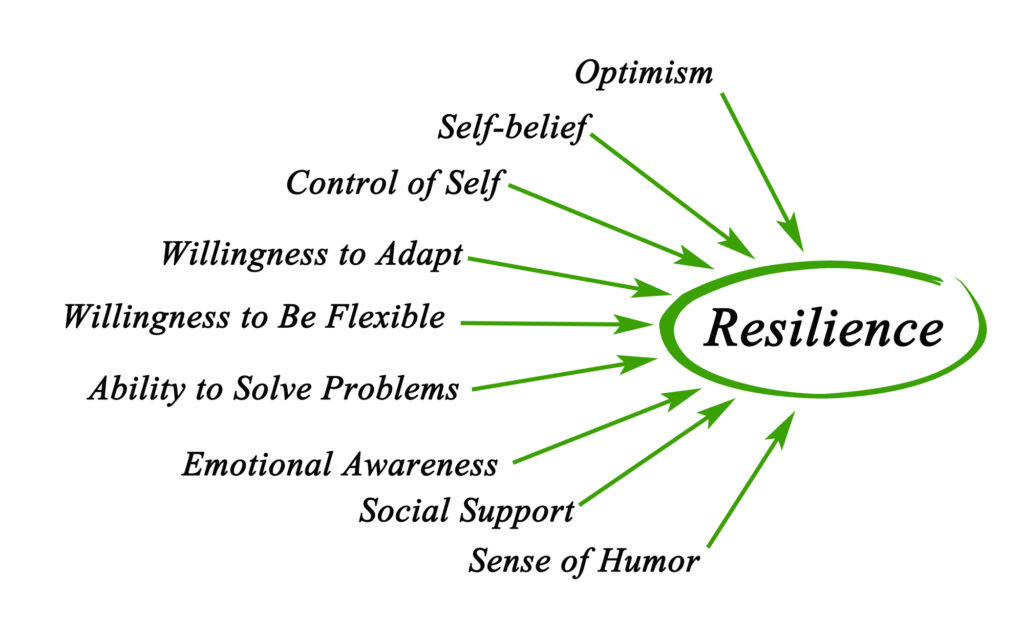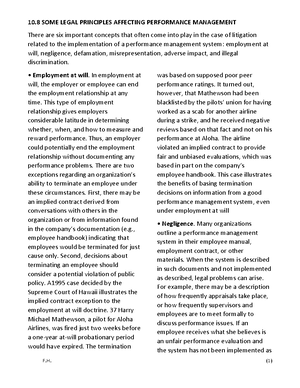Resilience And Mental Wellness: From Setback To Success

Table of Contents
Understanding Resilience and its Components
Defining Resilience
Resilience is the capacity to overcome challenges, adapt to change, and recover from adversity. It's not about avoiding hardship but about navigating it with strength and grace. Developing strong resilience significantly impacts your mental and emotional well-being, equipping you to handle stress more effectively and maintain a positive outlook even in the face of difficult circumstances. A resilient individual possesses the mental fortitude to not only survive but to learn and grow from challenging experiences.
Key Components of Resilience
Several key components contribute to building robust resilience:
- Optimism: Maintaining a positive outlook and believing in a positive future, even during difficult times. Optimistic individuals tend to see challenges as opportunities for growth.
- Self-Efficacy: Believing in your ability to cope with challenges and succeed. High self-efficacy fosters confidence and determination.
- Adaptability: The capacity to adjust to changing circumstances and find creative solutions to problems. Flexible thinking is essential for navigating unexpected events.
- Problem-Solving Skills: The ability to identify problems, analyze situations, and develop effective solutions. Strong problem-solving skills reduce feelings of helplessness and increase confidence.
- Strong Social Support Network: Having supportive relationships with family, friends, and community members provides emotional comfort and practical assistance during difficult times.
- Self-Care Practices: Prioritizing physical and mental health through activities like exercise, healthy eating, and sufficient sleep. Self-care is foundational for building resilience.
- Emotional Regulation: The ability to manage and control one's emotions effectively, preventing overwhelming stress and promoting emotional stability.
- Acceptance of Setbacks: Recognizing that setbacks are a normal part of life and reframing them as learning experiences rather than personal failures.
Each of these components works synergistically to build overall resilience. For example, strong problem-solving skills combined with a positive mindset can significantly reduce stress and improve coping abilities when facing setbacks. Similarly, a strong social support network provides emotional buffering, promoting emotional regulation and increasing self-efficacy.
Practical Strategies for Building Resilience
Cultivating a Positive Mindset
A positive mindset is a cornerstone of resilience. Here are some techniques to cultivate one:
- Practicing Gratitude: Regularly reflecting on things you're grateful for shifts your focus from negativity to positivity.
- Reframing Negative Thoughts: Challenging negative thoughts and replacing them with more balanced and realistic perspectives. Cognitive behavioral therapy (CBT) techniques are particularly helpful here.
- Focusing on Strengths: Identifying and leveraging your personal strengths builds confidence and self-efficacy.
- Using Positive Affirmations: Repeating positive statements to yourself can improve self-esteem and reduce negative self-talk.
- Mindfulness Meditation: Practicing mindfulness helps you become more aware of your thoughts and emotions without judgment, improving emotional regulation.
These techniques actively improve your mental health by reducing stress and anxiety and promoting a more optimistic outlook.
Developing Effective Coping Mechanisms
Effective coping mechanisms help manage stress and build resilience:
- Exercise: Regular physical activity releases endorphins, which have mood-boosting effects.
- Healthy Diet: Nourishing your body with a balanced diet provides the energy and nutrients needed to cope with stress.
- Sufficient Sleep: Adequate sleep is crucial for physical and mental restoration.
- Stress-Reduction Techniques: Practices like deep breathing, progressive muscle relaxation, and yoga can help calm the nervous system.
- Seeking Social Support: Talking to trusted friends, family, or support groups provides emotional release and practical assistance.
- Journaling: Writing down your thoughts and feelings can help process emotions and gain perspective.
- Engaging in Hobbies: Pursuing enjoyable activities provides relaxation and a sense of accomplishment.
These strategies are vital for stress management and building emotional resilience. For further information on stress-reduction techniques, explore resources like the American Psychological Association website.
Building a Strong Support System
A strong support network is crucial for navigating life's challenges:
- Connecting with Friends and Family: Nurturing close relationships provides emotional support and practical assistance.
- Joining Support Groups: Connecting with others facing similar challenges provides a sense of community and shared understanding.
- Seeking Professional Help: Therapists and counselors offer guidance and support for managing mental health concerns.
Investing in strong social connections is vital for your overall mental well-being and ability to build resilience.
Overcoming Setbacks and Transforming Challenges
Reframing Setbacks as Learning Opportunities
Setbacks are inevitable. The key is to reframe them:
- Analyze Failures: Identify what went wrong and why.
- Identify Lessons Learned: Extract valuable insights from the experience.
- Use Them for Personal Growth: Apply these lessons to future endeavors.
This proactive approach transforms setbacks from obstacles into opportunities for growth and increased resilience.
Setting Realistic Goals and Expectations
Setting realistic goals and managing expectations helps prevent disappointment:
- Break Down Large Goals: Divide large goals into smaller, manageable steps.
- Focus on Progress, Not Perfection: Celebrate small victories along the way.
- Adjust Expectations as Needed: Be flexible and adapt to changing circumstances.
Achievable goals foster a sense of accomplishment, boosting self-efficacy and resilience.
Celebrating Small Victories and Progress
Acknowledging achievements, no matter how small, fuels motivation:
- Keep a Success Journal: Record your accomplishments to track progress.
- Reward Yourself: Celebrate milestones to reinforce positive behavior.
- Focus on the Positive: Highlight your strengths and successes.
Recognizing progress boosts self-esteem and reinforces your ability to overcome challenges, enhancing your overall resilience.
Conclusion
Building resilience is a journey, not a destination. By understanding its components, cultivating a positive mindset, developing effective coping mechanisms, building a strong support system, and reframing setbacks as learning opportunities, you can significantly improve your mental wellness and navigate life's challenges with greater ease. Remember, resilience isn't about avoiding hardship; it's about bouncing back stronger, achieving success, and transforming adversity into growth. Start building your resilience today and transform setbacks into stepping stones on your path to success. Your mental wellness journey starts now!

Featured Posts
-
 Wichtige Ankuendigung Endgueltige Bauform Von Der Architektin Festgelegt
May 21, 2025
Wichtige Ankuendigung Endgueltige Bauform Von Der Architektin Festgelegt
May 21, 2025 -
 Switzerlands Strong Response To Chinese Military Actions
May 21, 2025
Switzerlands Strong Response To Chinese Military Actions
May 21, 2025 -
 Tory Politicians Wife Remains Jailed After Migrant Rant In Southport
May 21, 2025
Tory Politicians Wife Remains Jailed After Migrant Rant In Southport
May 21, 2025 -
 Gbr Highlights Best Grocery Buys Lucky Quarter And Doge Poll Update
May 21, 2025
Gbr Highlights Best Grocery Buys Lucky Quarter And Doge Poll Update
May 21, 2025 -
 Liverpool Juara Liga Inggris 2024 2025 Prediksi Dan Daftar Juara Premier League 10 Tahun Terakhir
May 21, 2025
Liverpool Juara Liga Inggris 2024 2025 Prediksi Dan Daftar Juara Premier League 10 Tahun Terakhir
May 21, 2025
Latest Posts
-
 Finansovi Kompaniyi Ukrayini Reyting Za Dokhodami 2024
May 22, 2025
Finansovi Kompaniyi Ukrayini Reyting Za Dokhodami 2024
May 22, 2025 -
 Analiz Rinku Finansovikh Poslug Ukrayini Lideri 2024 Roku
May 22, 2025
Analiz Rinku Finansovikh Poslug Ukrayini Lideri 2024 Roku
May 22, 2025 -
 Naybilshi Finansovi Kompaniyi Ukrayini Za Obsyagom Poslug U 2024 Rotsi Credit Kasa Finako Ukrfinzhitlo Atlana Credit Plus
May 22, 2025
Naybilshi Finansovi Kompaniyi Ukrayini Za Obsyagom Poslug U 2024 Rotsi Credit Kasa Finako Ukrfinzhitlo Atlana Credit Plus
May 22, 2025 -
 Finansoviy Reyting Ukrayini 2024 Uspikh Credit Kasa Finako Ukrfinzhitlo Atlana Ta Credit Plus
May 22, 2025
Finansoviy Reyting Ukrayini 2024 Uspikh Credit Kasa Finako Ukrfinzhitlo Atlana Ta Credit Plus
May 22, 2025 -
 Ing 2024 Financial Performance Insights From The Form 20 F Report
May 22, 2025
Ing 2024 Financial Performance Insights From The Form 20 F Report
May 22, 2025
